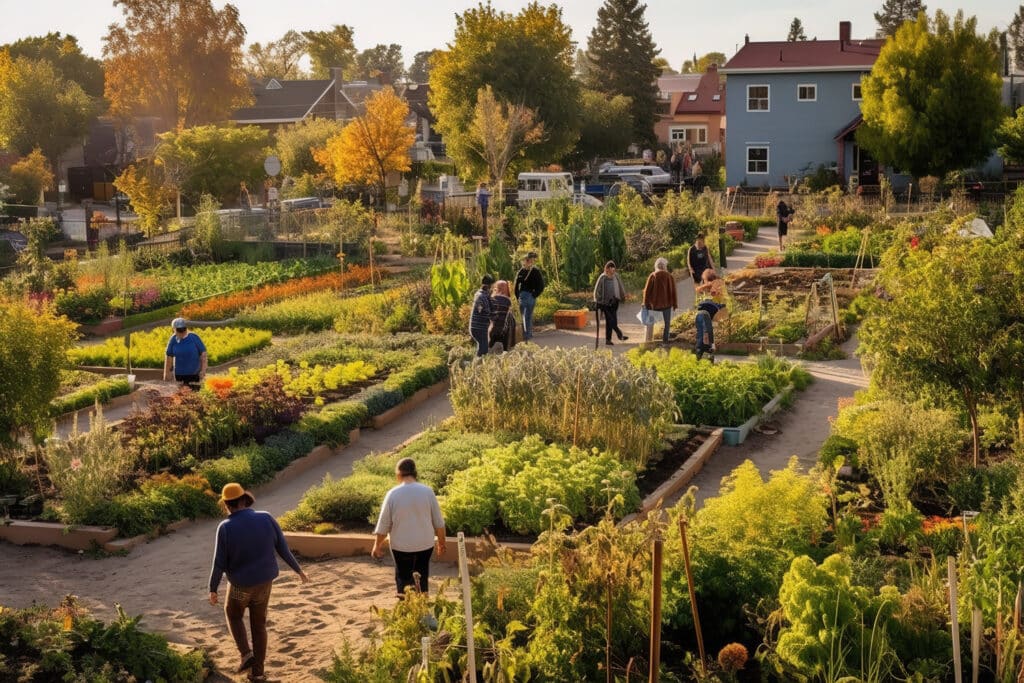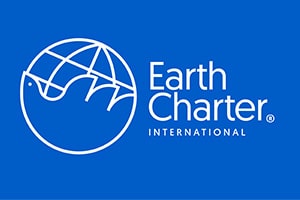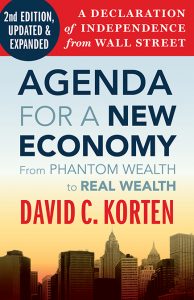Newsletter – September 27, 2023
(For more newsletters, visit HERE…)
Dear Friends,
It’s clear, from even a cursory scan of the headlines, we’re in big trouble. Current standard economics prioritizes growing consumption and financial assets, ignoring the now demonstrated fact that perpetual growth in consumption on a finite living Earth exacerbates inequality, destroys Earth’s capacity to sustain life, and leads to self-extinction of the human species. The search for alternatives to this money driven madness has led me to an ever-deepening inquiry into how Earth’s many species of living organisms self-organize to create and maintain conditions essential to their existence.
This inquiry is the foundation of a paper I’m currently writing, “Eco-nomics for an Ecological Civilization: From Maximizing Personal Financial Return to Securing the Wellbeing of Life.” After reading the current draft of the paper, a thoughtful Bainbridge Island colleague praised the effort but suggested something was missing. Although he couldn’t name it, I had a feeling that he was onto something important. Something was missing. After puzzling over this for several days, I recalled the Earth Charter’s defining charge to humanity: “We must realize that when basic needs have been met, human development is primarily about being more, not having more.”
— David Korten
___________
Being More, Not Having More

David Korten | September 27, 2023
Daily news reports now reveal the tragic consequences of our profoundly misguided choice to grow consumption and financial assets over pursuing the wellbeing and happiness of all of Earth’s people. The financial assets of the already obscenely rich and the human burden on Earth are growing at record rates. Meanwhile, the vast majority of the world’s people face growing environmental devastation, social breakdown, and daily desperation.
The statistics on growing inequality are truly stunning. For the first half of 2023 the world’s 500 richest people averaged growth of their personal financial assets by US$14 million each day. How much does one person need to meet their daily needs? The average American spends $2.7 million in their entire lifetime.
Meanwhile, according to the World Bank, nearly half of the world’s population struggles to survive on an income of less than US$6.85 per day. That is less than the price of a single meal at McDonald’s. Even if people are growing their own food, it is difficult for anyone to survive on US$6.65 per day in our contemporary world.
The fantasy that growing GDP benefits everyone and will ultimately create lives of effortless luxury for all has proven to be just that, a fantasy. Gandhi expressed the clear and simple truth many years ago. “The world has enough for everyone’s need, but not enough for everyone’s greed.” Going further, the voluntary simplicity movement demonstrated that simple living in community can be beautiful and fulfilling. Living in effortless luxury is boring.
We the people of a finite living Earth are in potentially terminal crisis because of our pursuit of individualized greed as our unifying human purpose. This has worked reasonably well in the short-term for a few hundred people who for the moment enjoy luxuries beyond the imagination of our wealthiest ancestors.
The world’s oldest billionaires will likely die before the ultimate system collapse, but their children will bear the consequences. So will younger billionaires and their children. There will be no winners on a dead Earth. We all share an interest in the profound transformation we must now navigate together if we are to have a viable future.
If our human purpose is not simply to consume or to make money, what is it? And how might we describe that purpose in a way that guides us in its pursuit? These questions have been on the human mind since the awakening of human consciousness. The answers continue to evade us.
The Preamble of the Earth Charter offers an answer that to me has profound appeal and meaning.
“Fundamental changes are needed in our values, institutions, and ways of living. We must realize that when basic needs have been met, human development is primarily about being more, not having more.”
So, what does it mean to be more?
We humans are a species distinguished by the extent of our awareness of life’s interdependence and the now global nature of that interdependence. Contemporary science informs us that we have not yet identified any other planet with the surface conditions essential to life. We have nowhere else to go. Life depends on the finite living Earth.
With this in mind, we currently face a defining choice. We can continue our current competition to be the last surviving centibillionaire on an Earth with unbreathable air, undrinkable water, a violently unstable climate, and a loaded gun in every bedroom. Or we can cooperate and share to create a world that meets the essential needs of all while creating abundant opportunities to experience beauty, love, creativity, and the joy of living, i.e., the joy of being more, not having more.
Which of these two options might we assume is more likely to be our intended purpose within the ongoing unfolding of creation? And which would any intelligent and mentally healthy human prefer?
Restoring people and Earth to full health will require deep transformation from our current money-centric imperial civilization to a life-centric ecological civilization guided by an eco-nomics dedicated to securing the wellbeing of the living Earth household and all its people. There can never be enough for everyone’s greed, but in the ecological civilization we can create together, there can be enough for everyone’s need.
Success requires that we stabilize our global population while sharing and caring for one another in ways consistent with our true nature. We must relegate to history books war and investment in the instruments of war. We must ensure that everyone has a comfortable home and a satisfying job that provides a meaningful means of living. And that every child is a wanted child growing up with the support of a loving family and a caring village.
A world in which neighbors care for one another and the place where they live. Where most people meet their daily needs by walking or biking and enjoy safe and attractive public transit to more distant places. Where we enjoy beautiful parks and lush family farms and gardens. Where hunger and violence are rare and evoke instant corrective action.
In this possible human future, we will recognize that the purpose of business is to provide people with a meaningful and adequate means of living producing goods and services that meet the needs of their community. This future can be achieved only if rich and poor choose to create it together with a mutual commitment to eliminating the inequality that now divides and misdirects us. Achieving this future will require significant rethinking and restructuring of the institution of the corporation.
The Earth Charter notes the essential need for collective corrective action:
“Every individual, family, organization, and community has a vital role to play. The arts, sciences, religions, educational institutions, media, businesses, nongovernmental organizations, and governments are all called to offer creative leadership.”
In my next newsletter, I’ll explore the need for ethical business leaders who recognize the deep conflict between current ways of doing business and our human nature, needs, and ethical responsibilities as members of Earth’s community of life.
___________
Noteworthy …

More wisdom from the Earth Charter, from The Preamble:
“The dominant patterns of production and consumption are causing environmental devastation, the depletion of resources, and a massive extinction of species. Communities are being undermined. The benefits of development are not shared equitably and the gap between rich and poor is widening. Injustice, poverty, ignorance, and violent conflict are widespread and the cause of great suffering. An unprecedented rise in human population has overburdened ecological and social systems. The foundations of global security are threatened. These trends are perilous—but not inevitable.”

From David’s 2023 Earth Day sermon for the Saltwater Universalist Unitarian Church in Des Moines, WA:
“The emerging vision of an ecological civilization requires only that we relieve ourselves of forms of consumption that are ultimately self-destructive and contribute nothing to human wellbeing.
Our distinctive ability to reshape our relationships with one another and Earth resides in our ability to choose with conscious collective intention our culture, institutions, technology, and infrastructure. Making the urgently needed changes in these choices is a very ambitious goal.”
Read the transcript of the sermon here…
___________
From the Book Shelf …
Living economies can come into being only through selforganizing, bottom-up processes of learning and emergence. Overcoming the barriers erected by Wall Street is an epic challenge. Fortunately, the cultural transformation required to align our cultural stories with our higher human nature and our shared vision of the world we want is under way. The institutional transformation is also under way, building on the foundation of what remains of Main Street economies.
(Chapter 12, p 164)
Agenda for a New Economy: From Phantom Wealth to Real Wealth
(2nd edition)
___________
If this newsletter was forwarded to you, please sign up HERE to receive your own copy. For more Newsletter Essays, visit HERE…


